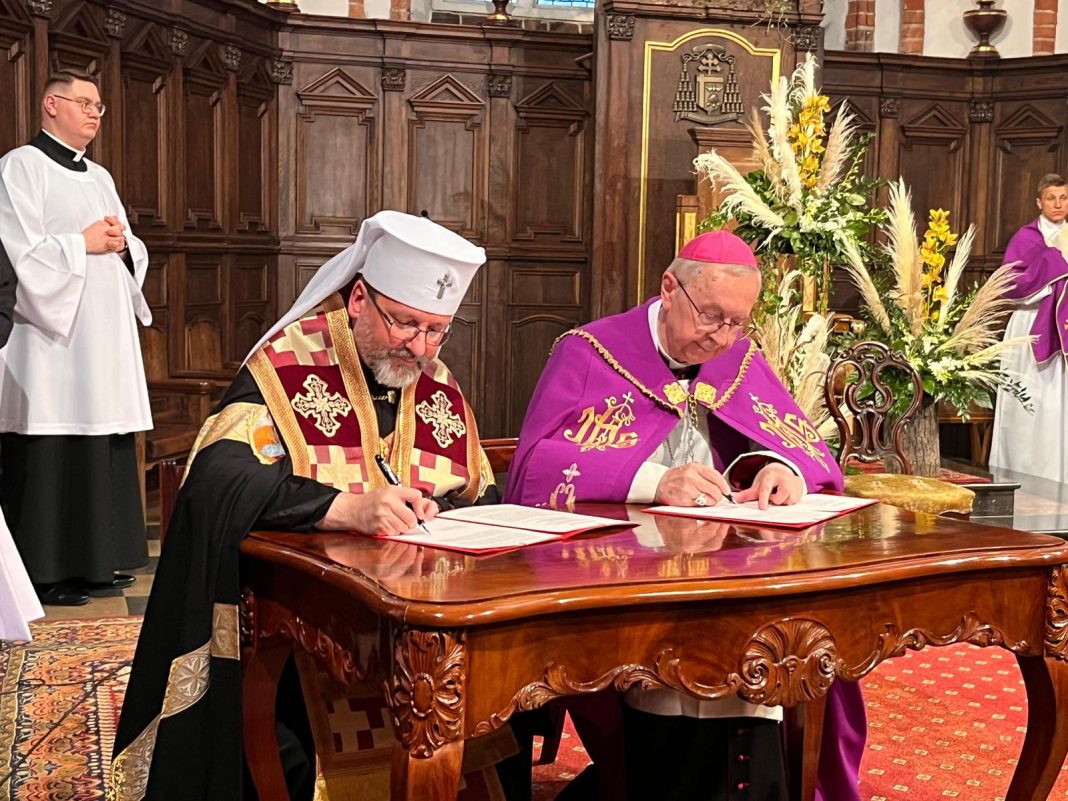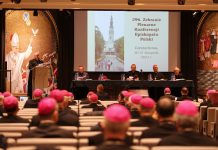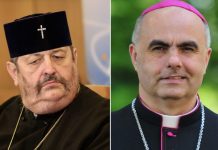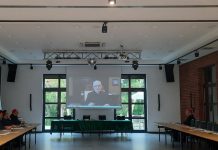A Service of “Forgiveness and Reconciliation” took place at Warsaw Cathedral on Friday, July 7. The event was part of the Church celebrationsof the 80thanniversary of the Volhynia Massacre. The service was attended by representatives of the Catholic Church in Poland, the Ukrainian Greek Catholic Church, and the Roman Catholic Church in Ukraine. A joint message was signed during the ceremony.
At the beginning, Archbishop Stanisław Gądecki, Metropolitan of Poznań, President of the Polish Bishops’ Conference indicated that the subject of forgiveness for the crimes committed 80 years ago in Volhynia is difficult yet there is a “great desire for a reconciliation between our nations”. He added that this cannot be done without reference to the truth and a cleardefinition of the genocide of Poles in Volhynia. Furthermore, he highlighted that “for an effective and lasting reconciliation process, the truth about this genocide should have a place in the educational curricula in Poland and Ukraine”.
The President of the Polish Bishops’ Conference called on the presidents, prime ministers, and parliamentary authorities of Ukraine and Poland toagree to dignified burials of all the victims of the genocide, preceded by exhumations of their bodies. He indicated that “The burials should have a religious character, in keeping with the victim’s religion and denomination”.
“Indeed, not everything in life can be solved by justice alone. No! Where evil is to be put to an end and a new story of grace is to begin, someone must love more than is required”, stressed Archbishop Gądecki.
Major Archbishop of Kyiv-HalyčSviatoslav Shevchuk, head of the Ukrainian Greek Catholic Church, observed in his address that “Reconciliation between our nations is a process of healing the wounds that both Poles and Ukrainians carry in their souls and consciences to this day. It is not easy to heal pain and resentment”.
Archbishop Shevchuk indicated the extraordinary developments of last year, “when Poles opened their hearts and homes to refugees from Ukraine. Earlier resentments have disappeared and were replaced by the opportunity to forge personal friendships. I can say the same for the Ukrainian side. The Ukrainian people feel that Poles are their best friends. We know that Poles always root for Ukraine and that they are like compatriots and closest comrades who can be counted on; they are our friends and our brothers. We can now build new relationships that are being born before our very eyes”.
During the service, Archbishop Stanisław Gądecki and Archbishop Sviatoslav Shevchuksigned a Message on the 80th anniversary of the Volhynia Massacre.“We believe thatin these difficult days we are writing successive important pages in the book of reconciliation so that we can arrange ourshared future as free and equal to each other”, says the Message.
The document stresses that reconciliation is not an easy process: “It calls for rising above the ordinary measure of justice, especially on the part of the one who – often justifiably – feels to be wrongedmore”.
The Messagerecalls that as of 1987 many joint initiatives were taken leading to reconciliation. We read in the text: “After years of joint reconciliation efforts by the Polish and Ukrainian bishops of both rites, we can say today that this reconciliation has already been achieved on paper. We do not argue among ourselves about the facts of the recent past and their assessment. Over the last tragic months, this has led to specific actions resulting from a sense of affinity, including emotional one, with our brothers in misfortune. Millions of Poles have opened their homes and their hearts to refugees from Ukraine”.
The archbishops admitted in the Messagethat St. John Paul II will be the patron of the Polish-Ukrainian reconciliation and stressed:“We must remember his personal initiative and patronage over the onset of the process”.
“We believe thatin these difficult days we are writing successive important pages in the book of reconciliation so that we can arrange ourshared future as free and equal to each other”, wrote the signatories of the Message.
At the conclusion of the service, Archbishop Stanisław Gądecki and Archbishop Sviatoslav Shevchuk offered each other a sign of peace.
Press Office of the Polish Bishops’ Conference
Translated by M. Turski / Office for Foreign Communication of the Polish Bishops’ Conference

 Polski
Polski







